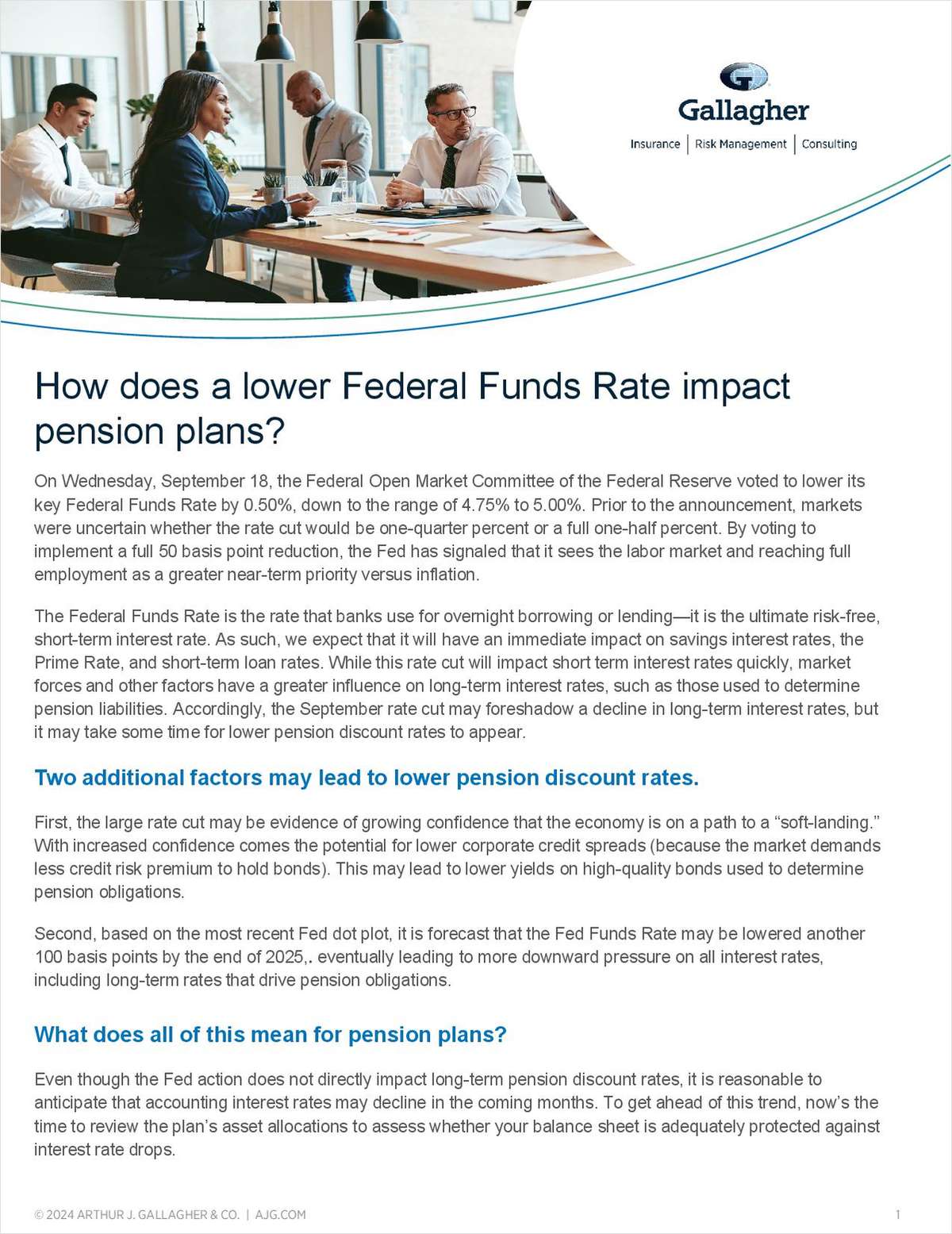Two new lawsuits seeking to vacate the U.S. Department of Labor’s fiduciary rule have been filed, bringing the latest total to four lawsuits.
The third lawsuit is from a consortium of insurance industry trade groups, and the fourth is by a trade organization representing fixed indexed annuities and several insurance company issuers of those products.
|ACLI, NAIFA and affiliates v. Department of Labor
The Washington, D.C.-based American Council of Life Insurers, the Falls Church, Va.-based National Association of Insurance and Financial Advisors, and several of NAIFA’s regional affiliates have filed suit in U.S. District Court for the Northern District of Texas, alleging the Labor Department's rule is in breach of the Administrative Procedure Act and the First Amendment of the U.S. Constitution.
Citing findings from a 2010 White House Task Force on the Middle Class, which noted a need to “promote the availability of annuities and other forms of guaranteed lifetime income,” the plaintiffs allege Labor Department's rule will drive up the cost of annuities, artificially distort the retirement product marketplace, and restrict the fee flow of commercial information around annuities.
Those effects will lead to restricted access to guaranteed income products at a time when retirement savers need them the most, the complaint claims.
“By imposing a vague and burdensome fiduciary standard on non-fiduciary sales relationships, the Rule will upend the retirement savings marketplace and seriously threaten consumers’ access to guaranteed lifetime income products,” the complaint says.
“The Rule is contrary to law, arbitrary and capricious, and violates the First Amendment,” allege plaintiffs, echoing claims in a suit brought by the U.S. Chamber of Commerce, Financial Services Institute, Financial Services Roundtable, Insured Retirement Institute, the Securities Industry and Financial Markets Association and several chamber affiliates in Texas. That claim was also brought in the Northern District of Texas.
In effectively redefining the term “fiduciary” in its rule, the Labor Department oversteps its statutory authority granted by Congress, argue the plaintiffs.
Also, when Congress assigned regulatory oversight of IRAs to the Internal Revenue Service, it specifically did not authorize enforcement of them through a private right of action. But the Best Interest Contract Exemption in the Labor Deparment's rule establishes IRA investors’ right to bring class-action claims against providers when advisors fail to act in clients’ best interests, according to one of the arguments in the more than 100-page claim.
In unexpectedly shifting the regulation of fixed indexed annuities to the Best Interest Contract Exemption from the “less burdensome” Prohibited Transaction Exemption 84-25 in its final rule, the DOL failed to provide sufficient public notice required under the Administrative Procedure Act, according to the suit.
And in making “ordinary sales conversations” about retirement products subject to the rule’s amended definition of fiduciary, the Labor Deparment restricts insurers’ and advisors’ freedom of speech guaranteed by the First Amendment.
“The Rule will unconstitutionally deprive American consumers of vital access to truthful retirement information,” allege the plaintiffs.
|Fourth suit first to include individual insurance companies
The Indexed Annuity Leadership Council, a consortium of five insurance companies that issue indexed annuities, and three of its member companies, along with another insurer, have brought suit against the Labor Department, again in U.S. District Court for the Northern District of Texas.
All of the named plaintiff insurance companies are licensed to do business in Texas.
The suit echoes arguments made in the second lawsuit filed against the Labor Department by the National Association for Fixed Annuities in the U.S. District Court for the District of Columbia.
The NAFA represents insurance companies that issue fixed annuities, as well as fixed indexed annuities, and the interests of insurance agents that account for 85 percent of the fixed annuity marketplace.
In arguing that Labor Department's decision to regulate fixed indexed annuities under the Best Interest Contract Exemption is arbitrary and capricious, as well as a breach of the Administrative Procedure Act, both IALC and NAFA’s claims reference the Securities and Exchange Commission’s failure to fold fixed indexed annuities into its regulatory scheme.
In 2010, the District of Columbia Court of Appeals rejected the SEC’s proposed rule, because the agency failed to account for the extensive state regulatory regimes in place that oversee the suitability of sales of fixed indexed annuities, according to IALC’s claim.
In its decision, the D.C. Circuit Court said the SEC “failed to determine whether, under the existing state-law regime, sufficient protections existed to enable investors to make informed investment decisions and sellers to make suitable recommendations to investors,” according to language for the decision cited in IALC’s complaint.
In a statement, Jim Poolman, executive director of IALC, said the trade group does not dispute that advisors should act in the best interests of their clients.
Rather, the claim addresses the “reality” that the Labor Department's rule “will harm millions of hard-working Americans who need the principal protection and lifetime guaranteed income that fixed indexed annuities offer,” said Poolman.
Complete your profile to continue reading and get FREE access to BenefitsPRO, part of your ALM digital membership.
Your access to unlimited BenefitsPRO content isn’t changing.
Once you are an ALM digital member, you’ll receive:
- Breaking benefits news and analysis, on-site and via our newsletters and custom alerts
- Educational webcasts, white papers, and ebooks from industry thought leaders
- Critical converage of the property casualty insurance and financial advisory markets on our other ALM sites, PropertyCasualty360 and ThinkAdvisor
Already have an account? Sign In Now
© 2024 ALM Global, LLC, All Rights Reserved. Request academic re-use from www.copyright.com. All other uses, submit a request to [email protected]. For more information visit Asset & Logo Licensing.








